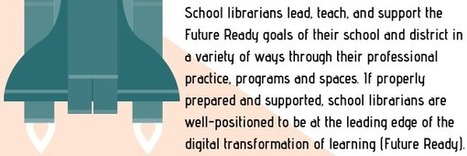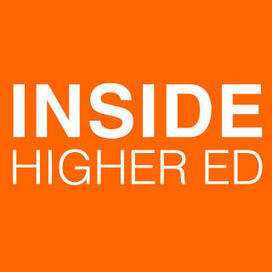Occupying one of the most lucrative job positions in the enterprise, data scientists must keep their skills fresh in the workplace. Here’s how.
With a 56% increase in US job openings within the past year, data scientists hold the title of the most promising job in America for 2019, according to a recent LinkedIn report. Data scientists have been gaining momentum in the tech world in the past decade, also topping Glassdoor’s list of the Best Jobs in America for the past four years.
Get Started for FREE
Sign up with Facebook Sign up with X
I don't have a Facebook or a X account

 Your new post is loading... Your new post is loading...
 Your new post is loading... Your new post is loading...
Current selected tags: '2019', 'USA'. Clear
Libraries have long counted up the books on their shelves to show their value. That meant Harvard University’s library (with 18.9-million books) was clearly superior to Duke University’s (with 6.1-million volumes) or University of California at Riverside’s (with a mere 3 million titles).
May 2019 marks five years since I completed the practicum to earn a Master of Science degree in Library Media Education (LME) from Western Kentucky University. The LME Practicum requires 120 field hours—with 40 of these hours being completed in a school library media/educational technology center under the supervision of an experienced library media/educational technology specialist.
The goal of the LME Practicum is for graduate students to be able to apply library media education skills in instruction, technology, collaboration, and administration under the supervision of a certified school librarian. Performance is assessed using the supervising media specialist evaluation, video conferencing, student time log, practicum evidence presentation, and a practicum reflection. Not much has changed regarding the practicum and its requirements since my experience five years ago. What has changed is the fact that I am no longer the one completing the practicum. Now, I am the supervising librarian.
There is currently a dearth of research on African American college students and their interactions in academic libraries. The purpose of this quantitative study is to investigate whether African American college students view academic libraries as welcoming places and to identify factors that are most influential in their perceptions of welcomeness. Adopting the theoretical lens of “library in the life of the user,” we administered a national online survey questionnaire to 160 black college students attending non-historically black colleges and universities in the United States. The survey data were analyzed by employing correlation coefficient and multiple regression analysis to test our hypotheses. The analytical results showed that participants felt welcomed in academic libraries, and library as place and information needs were significant factors that affected students’ perceptions of welcomeness. Our findings suggest that library patrons are important actors in constituting the atmospheric character of the library. |
Higher education institutions can close the achievement gap among their students through data-driven communication and planning. Higher education advisors are finding new ways to use data analytics to communicate, strategize and execute graduation plans for traditionally underserved students.
At Georgia State University, modern data collection tools give college counselors crucial academic and financial information, allowing them to make more informed suggestions to help their students succeed.
Apparently Stanford’s administration was publicly shamed enough to walk back its announcement that they can’t possibly afford to spend money on their university press anymore because its $26 billion endowment isn’t yielding enough cash and something’s gotta give. (Those bribes aren’t helping the balance sheet, either, dammit.) Sharing scholarship is apparently too great a luxury for a university that has the fourth largest endowment among US higher ed institutions. The press has been given a year’s reprieve in hopes we will forget how angry we got when we heard about the plan.Apparently Stanford’s administration was publicly shamed enough to walk back its announcement that they can’t possibly afford to spend money on their university press anymore because its $26 billion endowment isn’t yielding enough cash and something’s gotta give. (Those bribes aren’t helping the balance sheet, either, dammit.) Sharing scholarship is apparently too great a luxury for a university that has the fourth largest endowment among US higher ed institutions. The press has been given a year’s reprieve in hopes we will forget how angry we got when we heard about the plan.
Students at our public, urban community college were experiencing difficulties finding correct, consistent answers to their questions about navigating college processes, information students needed to succeed in school. These difficulties were fueled not only by our students’ backgrounds—they are often the first generation in their family to attend college, may require additional academic preparation, or lack support for their higher education dreams—but also by the siloed information environment prevalent in academia. When our college president realized the extent of student challenges in this area, she looked to the college’s librarians, campus experts in knowledge organization and provision, for direction with a knowledge management initiative to support our students.
While the role of the library has evolved to provide services from internet access to journalism programmes, countless libraries still face closure, as civic leaders fail to recognise the critical social, intellectual, cultural, and economic roles they play |















